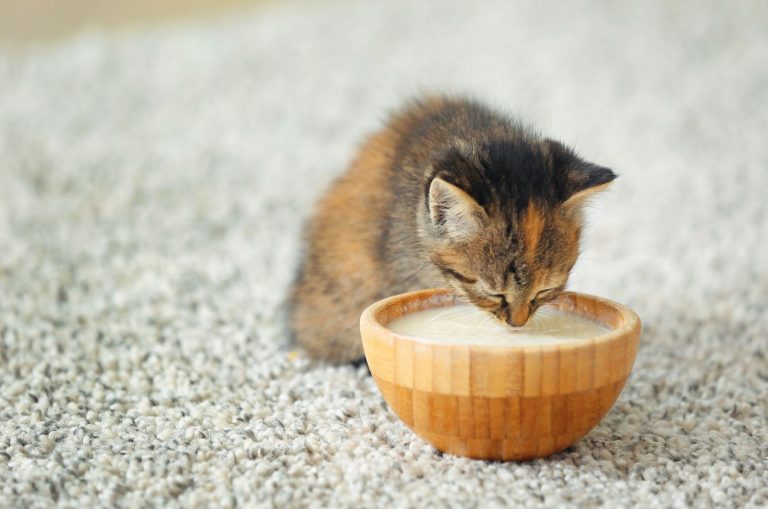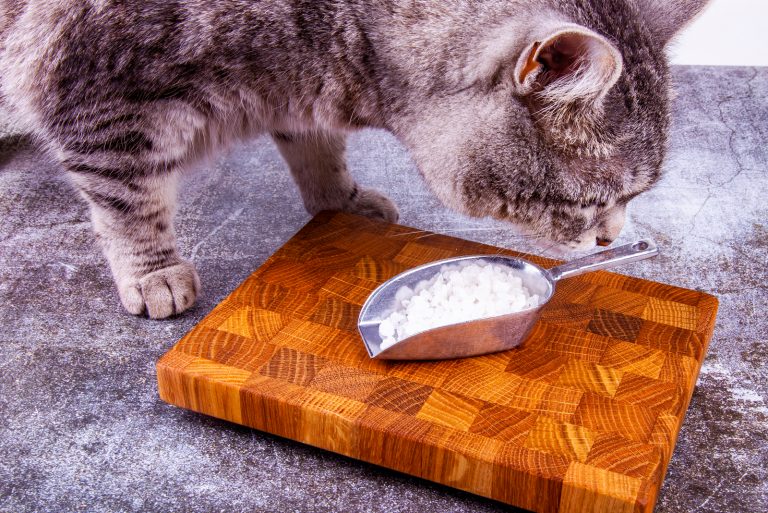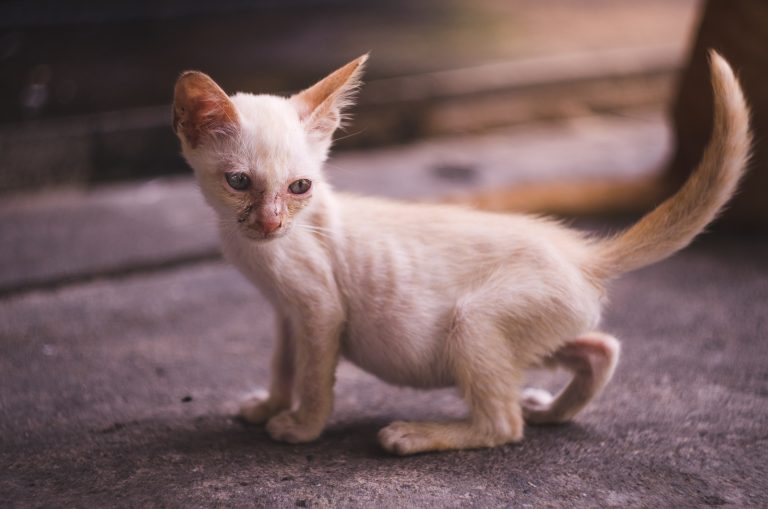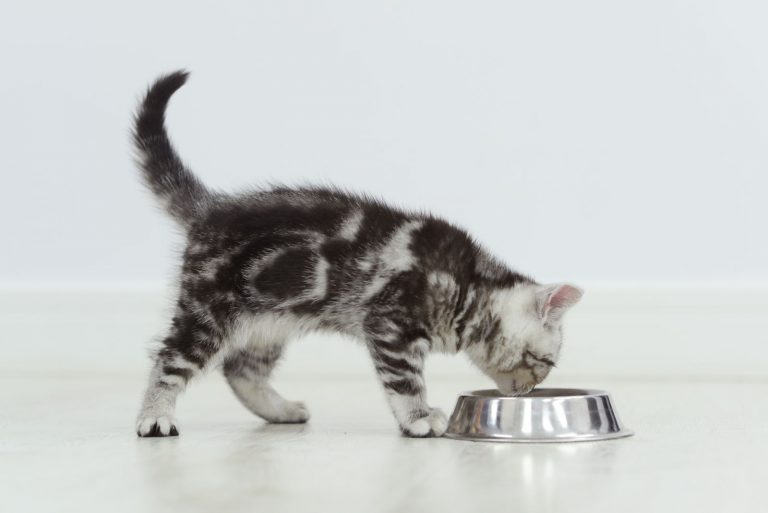Can Cat Eat Sardines? Many Benefits And A Couple Of Risks
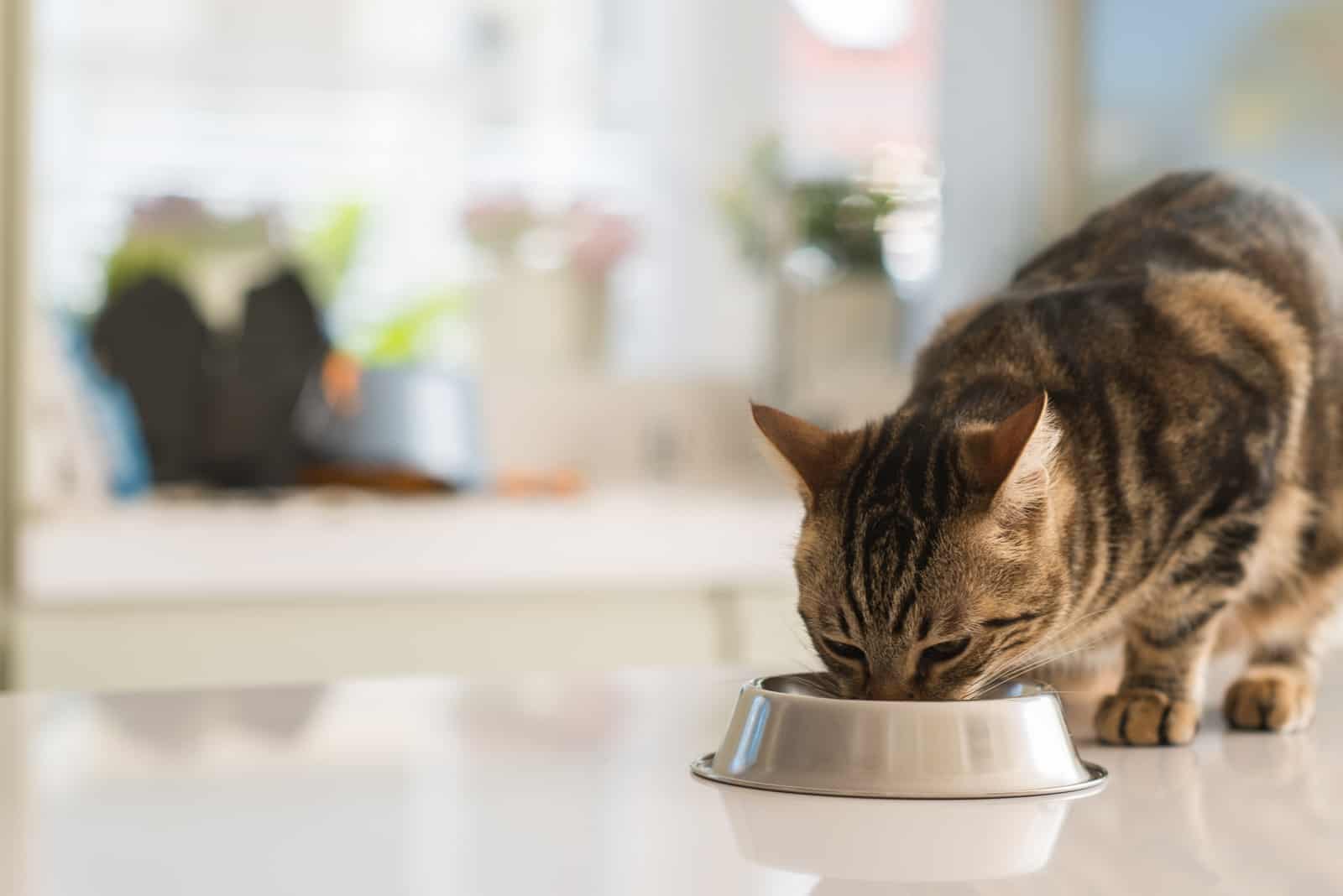
We all know this – cats are absolutely crazy for fish! Well, there are always exceptions, but 99.999% of the time (this is not a real statistic btw!), a cat will be thrilled to have some fish for lunch.
So, considering sardines are fish, you might be wondering Can cat eat sardines?
Let me give you a very quick and simple answer: Yes, cats can eat sardines!
Sardines are very small, soft-boned fish that live in oceans. They are packed with all kinds of nutrients and are considered to be one of the most healthy fish options out there.
They also should be a part of a human’s diet, so why not give some to your feline friend as well? Hmmm, this is where things get tricky…
Continue reading to find out all about the benefits sardines offer, and also some things you should be aware of when it comes to feeding your cat different kinds of sardines.
Can Cat Eat Sardines?
As I mentioned, sardines are safe for cats to eat and, generally speaking, cats absolutely love sardines. Meat-derived protein is the most important part of a healthy cat’s diet, so the “sardine-frenzy” makes sense.
Both kittens and adult cats can safely eat sardines. Does this mean sardines are supposed to be the main thing in your cat’s diet? Absolutely not.
No matter how healthy sardines are, eating them in large amounts may have side-effects, which I will be talking about later in the article, so make sure to stick around.
3 Forms Of Sardines – Which One Is The Best For Your Cat?
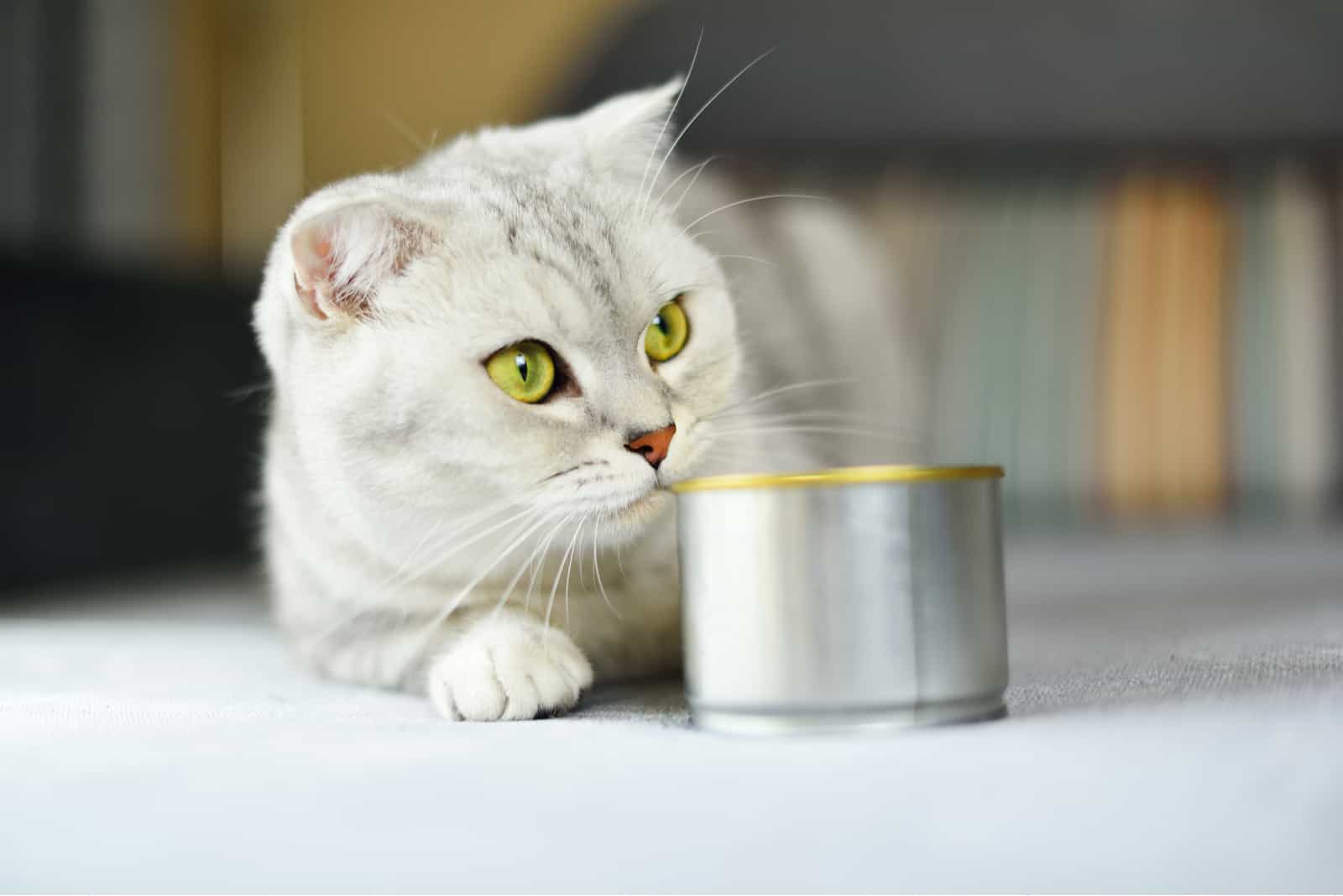
Sardines can come in 3 different forms – raw, cooked, or canned. So which is the safest for feeding cats?
1. The Healthiest Option: Cooked Sardines
When it comes to the three options (cooked, canned, or raw sardines), cooked sardines are the safest and most healthy option for your cat.
Why is this so?
It’s because when you cook, you will most likely cook fresh sardines (even though the frozen ones are also an option) and so you will know exactly what you use when cooking it.
Remember not to season the sardines in any way!
On the other hand, canned sardines contain preservatives, and usually contain oils and sauces that can cause stomach problems for your cat.
When you cook sardines, you know there are no added chemicals, flavors, seasonings, or unhealthy oils!
2. The Easiest Option: Canned Sardines
Just because this is the most convenient option for cat owners, doesn’t mean it’s not healthy! Sardines maintain all of their health benefits even after they’re canned.
There has been some research on whether canned food loses its nutritional benefits, but the research showed that nutrient loss is minimal.
So do not worry, canned sardines are a safe and a healthy option. There is one important question when it comes to canned sardines – what are they preserved in?
For example, sardines in water are perfectly safe, while sardines in soybean oil should be completely avoided. In a section below, I have explained in detail all about the different types of canned sardines.
3. A Big No-No: Raw Sardines
I think most pet owners know not to give raw meat and raw fish to their feline pets.
Raw meat can contain unwanted bacteria that your cat can ingest. That can lead to stomach issues and other unwanted health issues for your pet.
So, do not give your cat raw sardines.
All You Need To Know About Canned Sardines
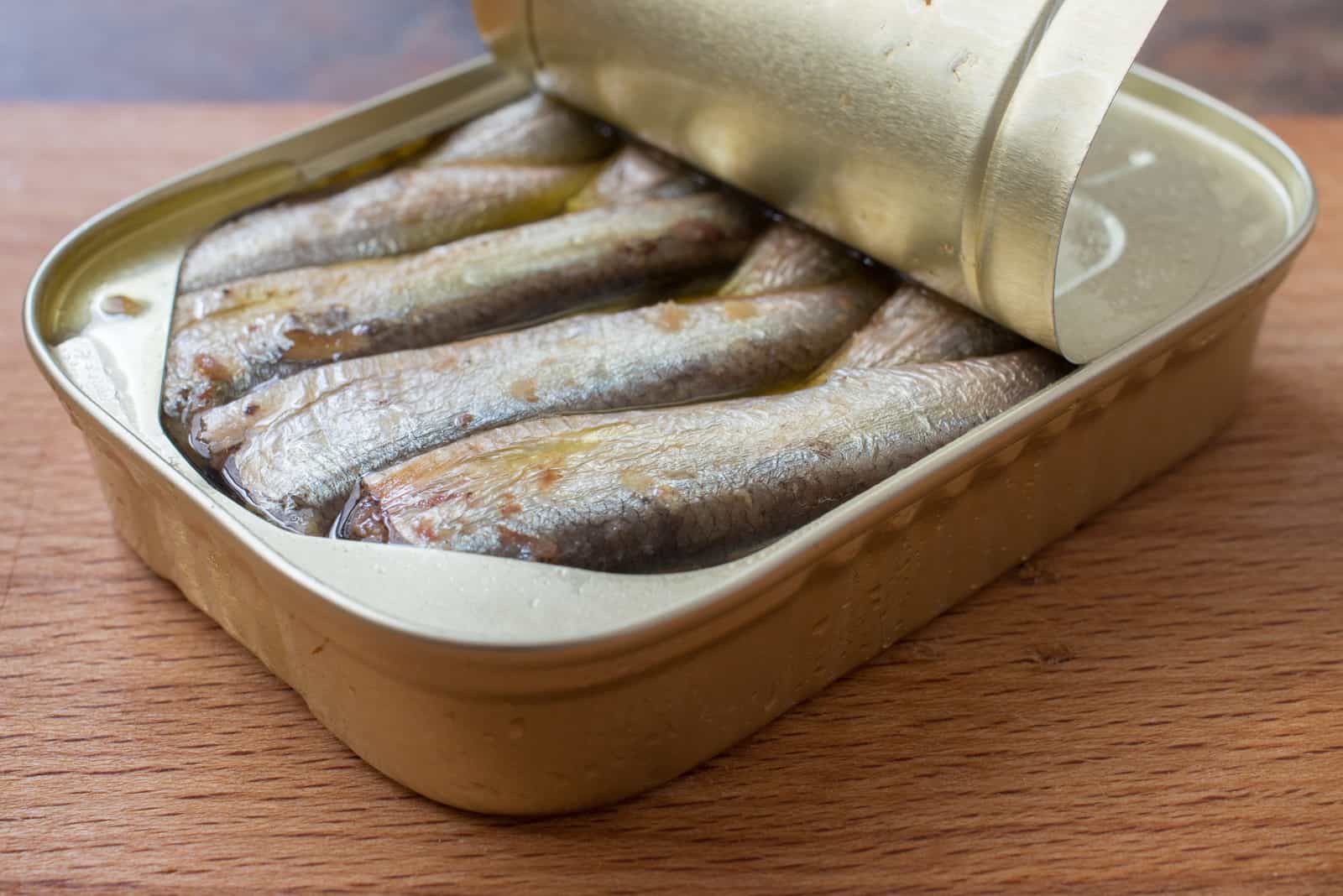
As canned sardines are the most convenient option for most cat owners, let’s take a deeper look at the different types of canned sardines you can get, and whether you should give them to your feline friend or not.
1. Sardines In Water – 100% Yes
This is by far the best option for your cat. Sardines in water contain no added spices, which is the perfect choice for your cat as cats do not handle seasoned food very well.
2. Sardines In Tomato Sauce – A Reluctant No
This one is a bit tricky.
The thing about sardines in tomato sauce is that the sauce is never just made of tomatoes; there are always some other spices and components that your cat shouldn’t eat. For example, many of them contain pepper, onion or garlic, and these are “forbidden cat food”.
If you don’t have anything else in your kitchen except for sardines in tomato sauce, you can rinse the sauce from the surface of the sardines and give one sardine to your cat.
3. Sardines In Sunflower Oil – A Reluctant Yes
Olive oil is known to be amazing for maintaining your cat’s shiny coat and healthy skin. It is also good for the immune system and heart health as well. It can be good for helping your cat with hairball removal because it makes the throat slippery.
So why is the answer a reluctant yes?
This is because excess sunflower oil causes digestive problems for cats. Don’t give your cat a sardine drenched in oil, make sure to let the oil drip for a bit so that excess oil drains away.
4. Sardines In Olive Oil – A Reluctant Yes
The answer here is the same as for the sardines in sunflower oil. Olive oil offers the same benefits as the sunflower oil, but an excess of olive oil can lead to vomiting and diarrhea.
Make sure to drain olive oils from sardines before giving them to your pet.
5. Sardines In Soybean Oil – A No
Soybean oil is not something I recommend giving to your cat at all. It contains some substances that are harmful in large amounts, such as saturated fatty acids. It’s best to avoid giving your cat sardines in soybean oil.
Of course, nothing bad will happen to your cat from eating one sardine in soybean oil, but it’s best not to give it to your cat. There are far better options out there.
6. Sardines In Brine – A Reluctant Yes
Sardines in brine are sardines that are canned in very salty water.
Cats are more sensitive to high salt content, so brine is not good for them. One thing I recommend you do is wash off the brine before giving the sardine to your pet.
Very Important: Nutritional Value Of Sardines
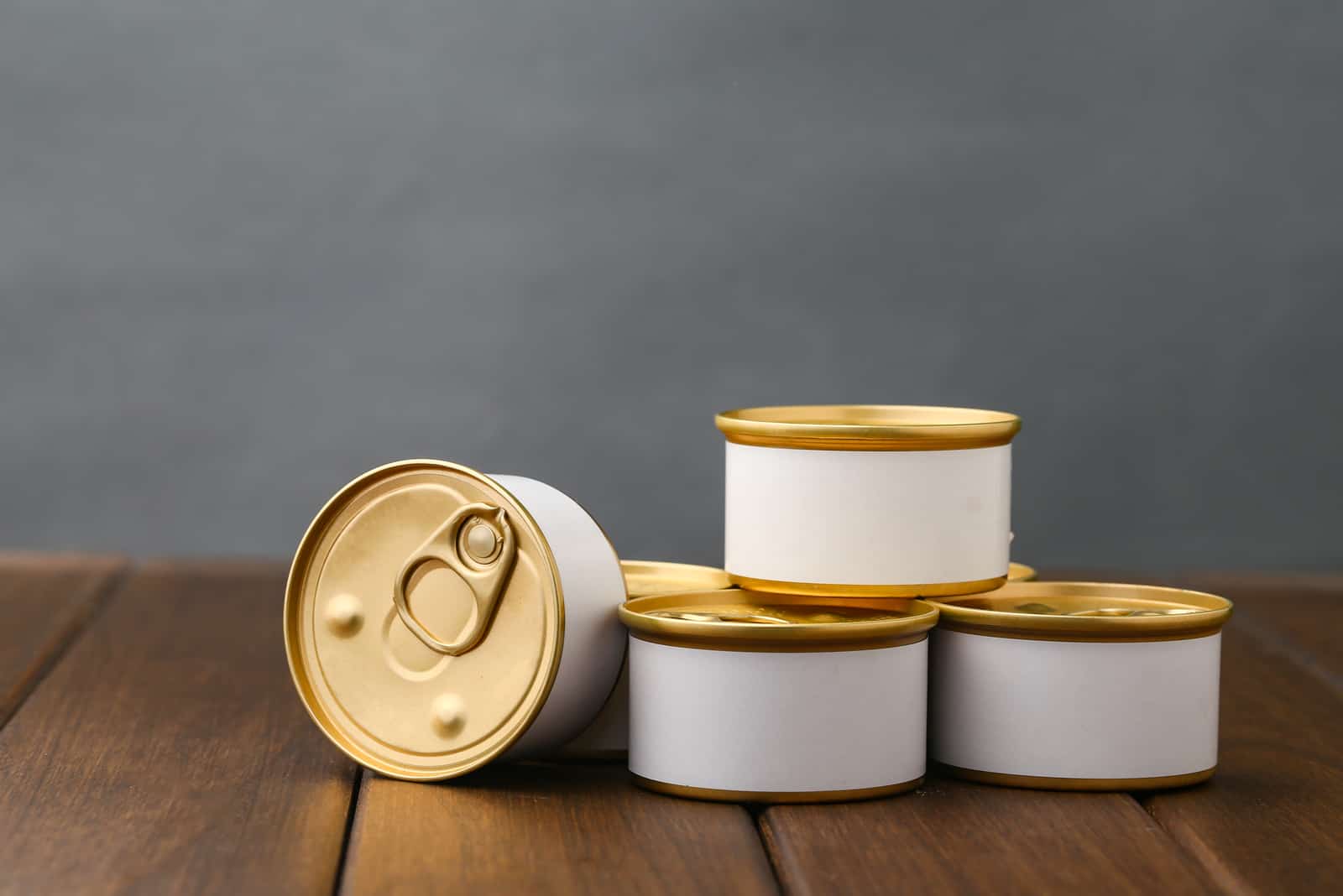
Let’s talk numbers for a bit. Below is the nutritional information for one small (fresh) sardine.
One small sardine (15g) Amount
Protein 3.5 g
Fat 0.9 g
Carbohydrates 0 g
As you might already know, a healthy cat’s diet should have high amounts of protein, moderate to low amounts of fat, and almost no carbohydrates.
Do you see how well sardines match a cat’s dietary needs?
Apart from being high in protein, sardines also contain the following nutrients:
🐾 vitamin B12
🐾 vitamin B6
🐾 vitamin B3
🐾 vitamin D
🐾 calcium
🐾 iron
🐾 phosphorus
🐾 magnesium
🐾 selenium
Even with this being the case, it does not mean that sardines should be the main part of your cat’s diet. In fact, they should be given only as occasional treats.
Before I start talking about the potential drawbacks of feeding your cat large amounts of sardines, let’s go over the health benefits they offer!
5 Pros Of Feeding Sardines To A Cat
1. They’re A Great Source Of Protein
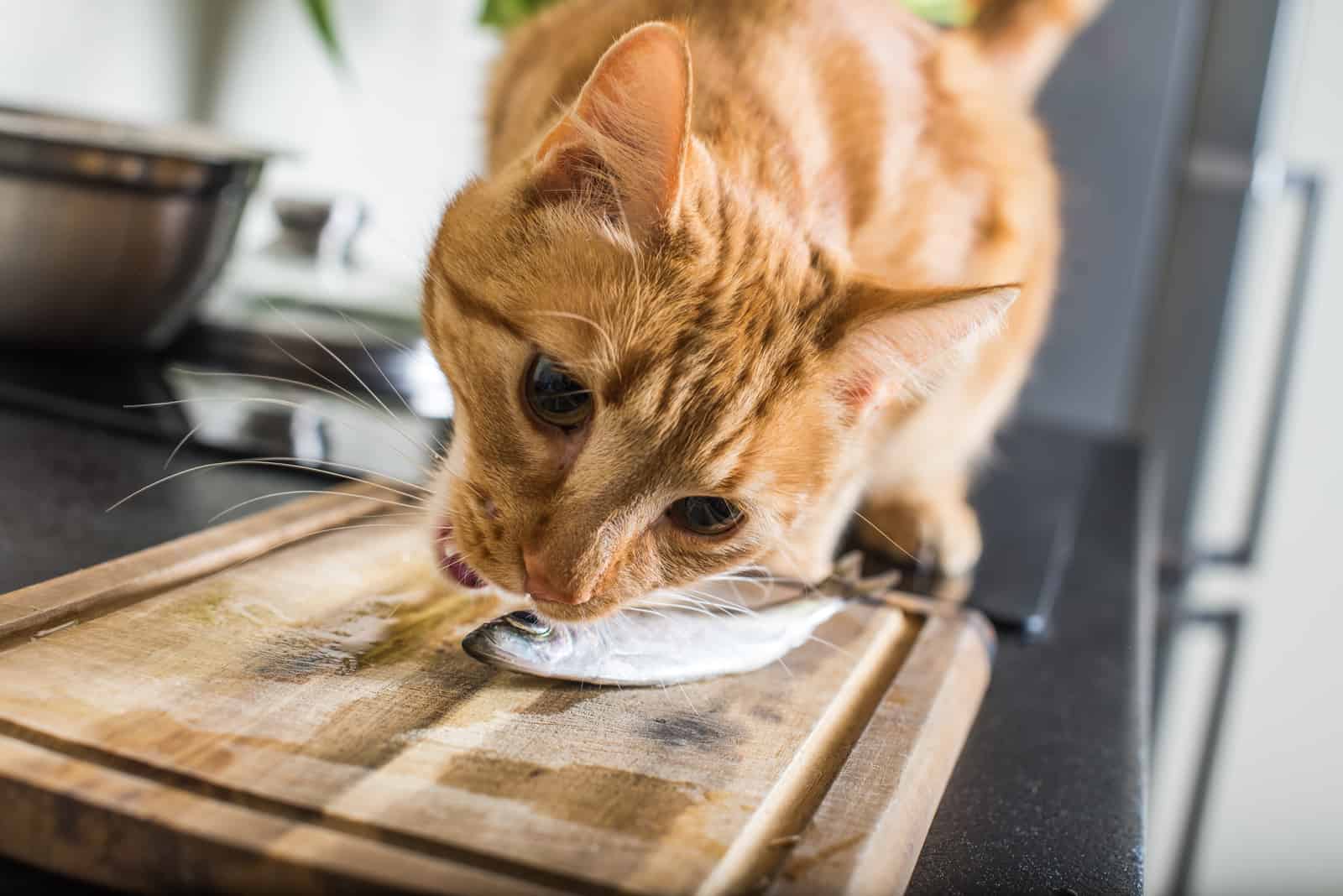
As you have seen, sardines are high in protein. Cats don’t need just any kind of protein, they need high-quality protein. What does this mean?
Well, there is high-quality protein and there is low-quality protein. Without getting into too much detail, low-quality protein is, for example, plant protein. That’s why cats don’t eat a lot of veggies or fruit.
On the other hand, high-quality protein is protein from fish and chicken, for example.
Another benefit of sardines is that sardine-derived protein contains essential amino acids. Those are amino acids your cat’s body can’t make, which means they have to be ingested, making sardines a superfood.
You might also find this article interesting: Can Cats Eat Crab? Read On To Find Out!
2. They’re A Source Of The Amazing Omega-3 Fatty Acids
The essential long-chain omega-3 fatty acids eicosapentaenoic acid (EPA) and docosahexaenoic acid (DHA) can be found in sardines (and other fish).
I am sure you already know how beneficial omega-3 fatty acids are in everyone’s diet, but let’s quickly mention a couple of them:
🐾 reducing inflammation
🐾 prevent heart disease
🐾 support the immune system
🐾 good for brain health
EPA and DHA are daily diet requirements for cats, so make sure your cat has enough of them in its diet.
There are even fish oils sold in the form of supplements for cats and they are high in EPA and DHA.
3. They’re Full Of Vitamins
These organic substances are needed in everyone’s body, (both cats and humans) in order to “keep the machinery running”.
These are the most abundant vitamins found in sardines and their benefits:
[table id=51 /]
4. Sardines Provide Minerals As Well
Minerals are used by your cat’s body for a wide range of functions, so let me show it in the form of a table.
[table id=52 /]
5. Sardines Are Low In Mercury (Unlike Many Other Fish)
Mercury is a chemical element that naturally occurs in the sardine’s habitat – the ocean. Now it is found in higher amounts due to ocean pollution.
Sardines feed on plankton, which makes them very low in mercury.
The fish that are high in mercury are those that are higher up the food chain, such as bluefin tuna for example.
As you might already know, larger fish accumulate mercury contamination through their diet of eating other fish (that also contain mercury themselves). Sardines do not eat other fish, so their mercury contamination levels are very low.
Do Cats Like Sardines And ….The Smell Of Sardines?
Yes and Yes!
Cats love eating sardines and they adore the smell of sardines. You might be a tad surprised about this fact, considering the taste and the smell of sardines is …unusual for us humans.
If you don’t believe me, try opening a can of sardines and see how long it takes your kitty to get to you. Your cat will come running towards you in 0.3 seconds (again, not real statistics!). Some even use sardines as bait for their cats!
Why Do Cats Enjoy The Taste And Smell Of Sardines?
This is because of their natural instincts. Cats are famous carnivores and not the biggest fans of fruit and veggies. Yes, they will eat some fruits and veggies occasionally, but it’s never their top choice of food.
Nevertheless, cats LOVE meat and cats in fact NEED meat in their diet. Without meat, a cat turns weak and ill. A no-meat diet is out of the question for cats. Sardines are meat, so there you go! Cats love them!
Suggested Read: Can Cats Eat Lamb Meat? Yummy Cat Menu
How Much And How Often Should I Give My Cat Sardines?
You might have thought Well, considering how high in protein, vitamins, and minerals they are, I can give my cat a couple of sardines every day.
However, you should not give your cat sardines every day.
The recommended amount of sardines is one sardine 2-3 times a week. This might be a smaller amount than what you expected.
Some recommend sardines to be given even less frequently. That is because ingesting large quantities of sardines has side effects.
Sardines should only be an occasional treat, and they are not a replacement for a meal, but they can be a healthy replacement for your cat’s dry kibbles.
So no matter how much your cats enjoy sardines, please don’t give them often. Think about their long-term well-being rather than their 1-minute long satisfaction.
4 Health Risks Tied To Sardine Intake
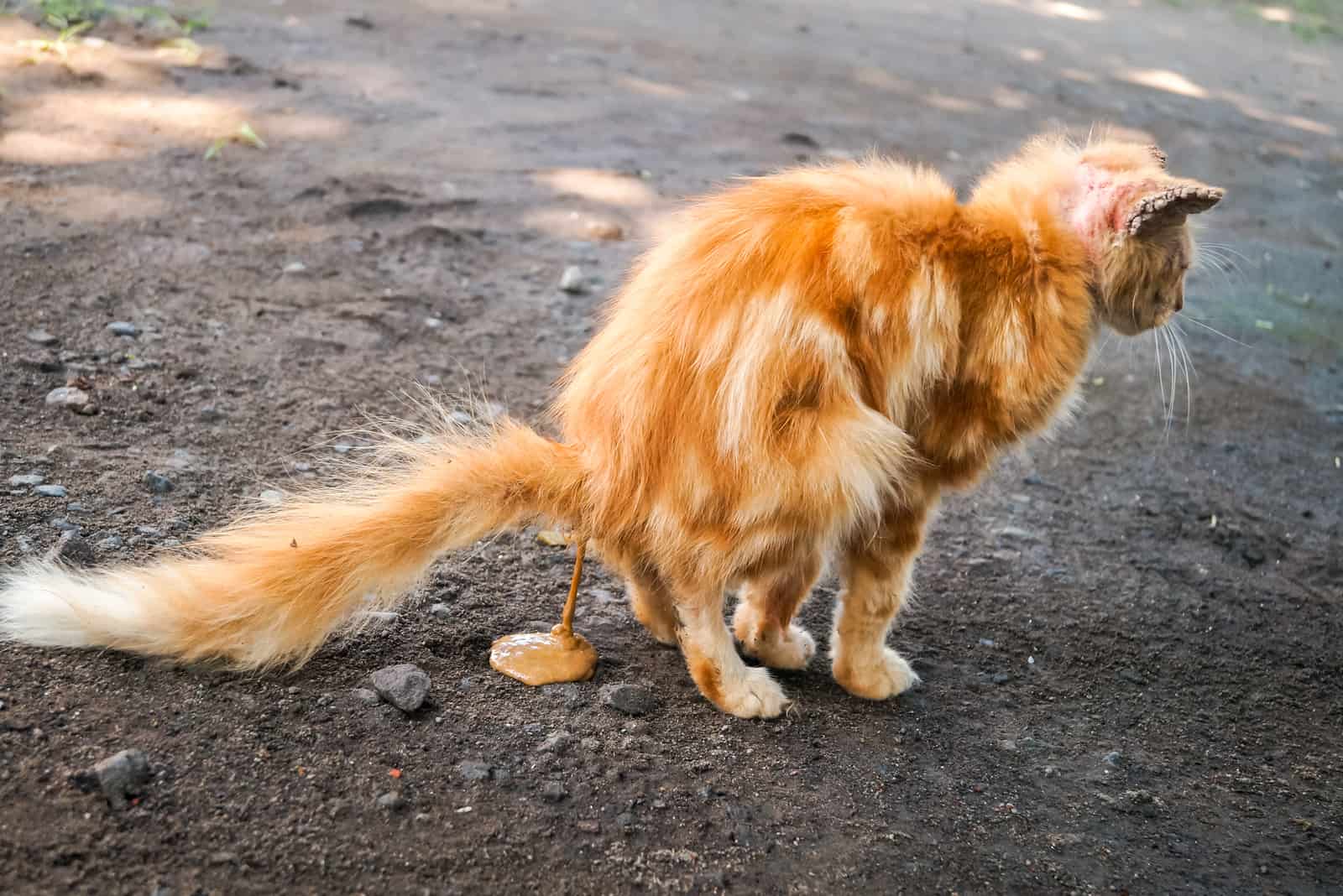
Even though sardines are extremely healthy, that doesn’t mean they should be your cat’s breakfast, lunch, and dinner.
In fact, they should not be given often nor in large quantities. Why is that?
Here are the risks associated with large intake of sardines:
1. Diarrhea
Fatty foods do not sit well with a cat’s stomach. Sardines are oily fish (remember oil is fat). That means too many sardines will probably mean diarrhea for your cat. I don’t think either of you want that…
Related: Cat Poop Half Firm Half Soft: 5 Reasons And How To Help
2. Vitamin B Deficiency
Sardines contain thiaminase, which is an enzyme that breaks down thiamine (vitamin B1). Vitamin B deficiency in cats leads to weight loss, diarrhea, and vomiting.
In order to prevent this, limit your cat’s sardine intake to a moderate and healthy amount.
3. Mercury Poisoning
This is very unlikely to happen, but it has to be mentioned. Even though sardines don’t contain a high level of mercury (which is a very toxic heavy metal), they still do have some mercury in them.
The issue can arise due to a cumulative effect; little by little, mercury builds up and can pose a problem. That’s why it is not recommended to give sardines in large quantities at once, or in small quantities very often.
4. High Sodium Intake
Sardines have a lot of sodium in them. It’s nothing to be concerned about if your cat eats sardines in the recommended amount.
However, if you give your cat more sardines than you should, it can lead to your cat developing kidney disease over time. The high salt content can lead to kidney stone formation, which is not desirable, of course.
FAQ
What Are The Nutritional Benefits Of Eating Sardines?
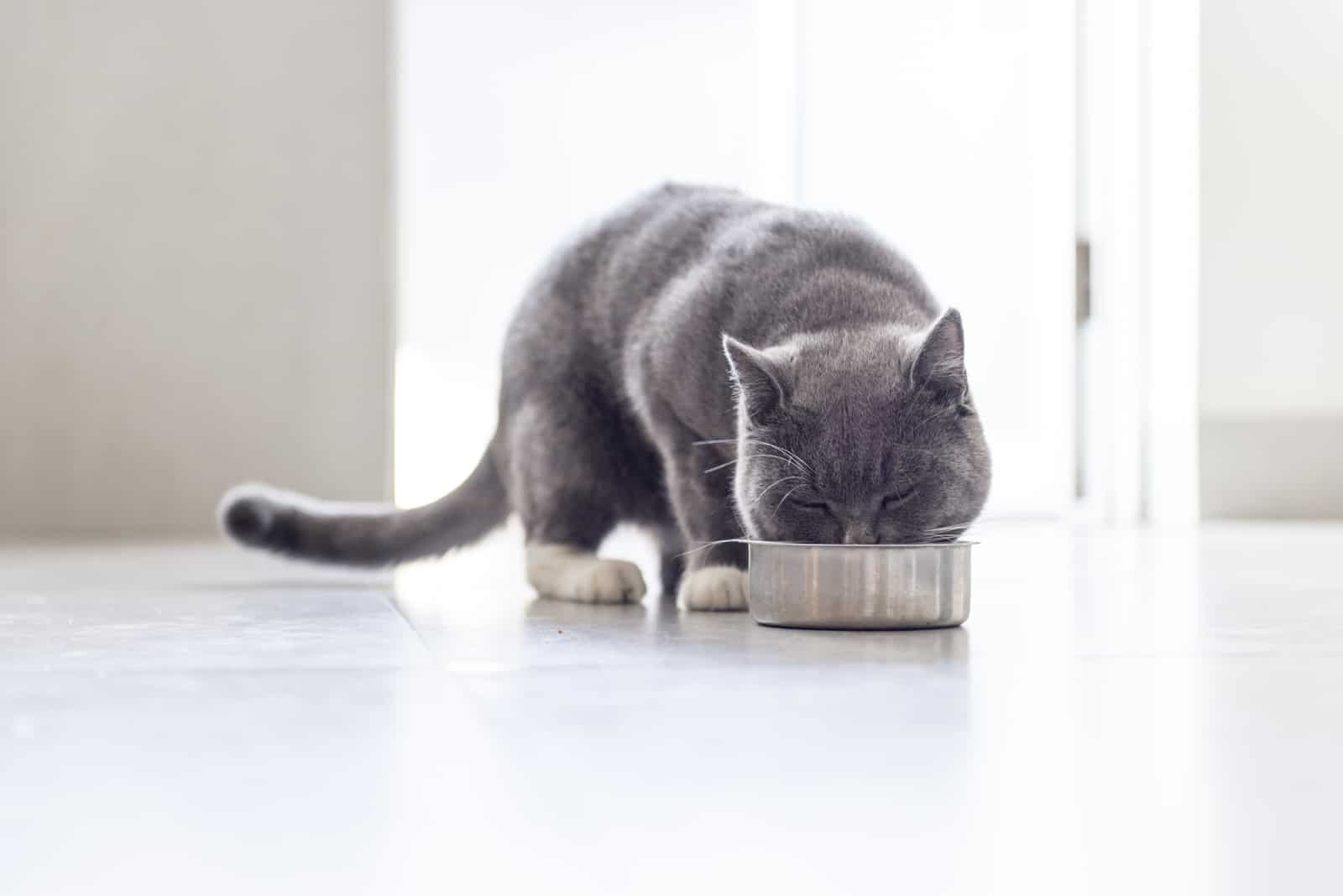
Sardines are a great source of protein, contain a moderate amount of fat and no carbohydrates – which is perfectly aligned with your cat’s dietary needs.
They have the right amount of macronutrients, so let’s talk about micronutrients.
Sardines contain many vitamins, such as vitamin A, B3, B6, B12, D and K. When it comes to minerals, they are high in calcium, phosphorus, magnesium, selenium, and iron. All of these are known to have health benefits for cats.
How Many Sardines Can I Give My Cat?
You can give your cat one sardine every couple of days. Everything above this amount carries side-effects for your cat.
Can I Feed My Cat Sardines In Water?
Absolutely yes! Sardines in water are actually the best option when it comes to a wide range of canned-sardine options. Sardines in water are not seasoned with anything and there are no additives that might be dangerous for your cat (such as garlic, for example).
Can Cats Eat Sardines In Olive Oil?
Yes, cats can eat sardines in olive oil. Olive oil is actually very healthy for your cat (it makes the coat shiny). There is just one quick side note: cats can get stomach issues from ingesting large quantities of olive oil.
In order to avoid this, make sure to drain the olive oil from the sardines.
What Are Some Other Types Of Fish That Cats Can Eat?
Apart from sardines, the most popular fish that cats can eat are:
🐾 Tuna
🐾 Salmon
🐾 Mackerel
🐾 Cod
🐾 Tilapia
There are other fish cats can eat, but these are the most common and widely available ones.
What Canned Fish Can Cats Eat?
Canned tuna and canned sardines seem to be the go-to canned fish options for many cat owners. Canned salmon and mackerel are also a good option.
Final Thoughts
Cats can eat sardines as they are perfectly safe for them (in the right quantities) and are healthy as well!
In fact, cats are obsessed with the smell and the taste of fish, and sardines are no exception! If you’ve never given you cat sardines, I suggest you try it and see if your cat will like it (but I’m sure your kitty will LOVE them)
Sardines contain a lot of protein, no carbohydrates, and lots of vitamins and minerals, making them very healthy. They are also low in mercury, which cannot be said for most other fish (such as tuna).
Be cautious – don’t give sardines to your cat too often or in large amounts. Even though they offer many health benefits, they some with a couple of risks as well. Giving your cat too much sardines can lead to mercury poisoning, vitamin B deficiency, vomiting, and diarrhea.
Avoid this by giving your cat one sardine a few times a week, or even less than that. Avoid canned sardines stored in tomato sauce and soybean oil.
The best option is sardines in water, but you can also use sardines stored in olive or sunflower oil, just make sure the sardines aren’t drenched in oil (oil does not agree with a cat’s stomach).
Now you know the answer to Can cat eat sardines?! I hope you enjoyed reading this article and have learned something new!
Related Articles:
Can Cats Eat Sausage? Read on to find out

